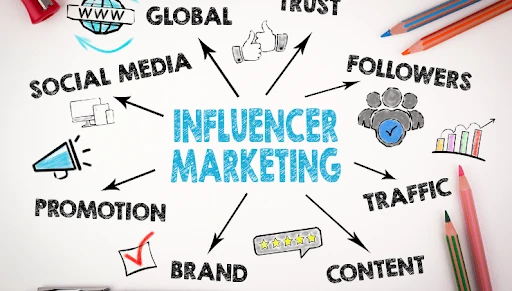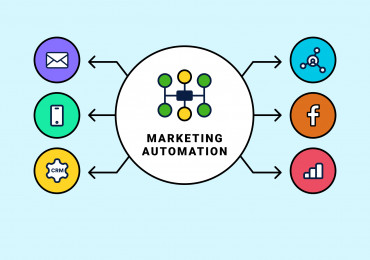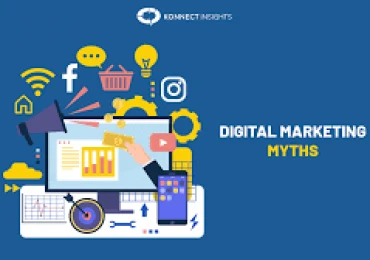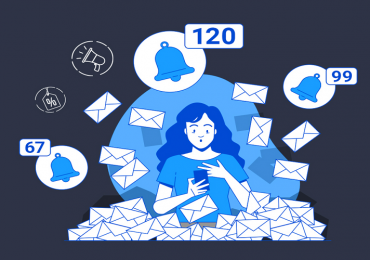
It is the process of collaborating with individuals who are popular and highly influential on social media platforms to promote a brand, product, or service. Influencers are usually considered experts or credible in their fields, such as fashion, beauty, gaming, or fitness.
Characteristics of influencer marketing:
1. Targeting specific audiences: It relies on influencers who are followed by an audience that matches the segment targeted by the brand.
2. High credibility: Influencers work to enhance credibility by providing personal recommendations.
3. Use of social media platforms: Marketing is often done through platforms such as Instagram, YouTube, TikTok, and Facebook.
4. Personal interaction: It allows direct communication with the audience through comments and messages.
5. Customized content: Influencers often provide customized content that matches their style and personality.
Benefits of influencer marketing:
1. Increase brand awareness: It helps in reaching a wide audience quickly.
2. Achieving customer trust: It benefits from the trust that followers place in influencers.
3. Improved conversion rates: Can increase sales as a result of personal recommendations.
4. Increased engagement: Enhances engagement with content through comments and shares.
5. Precise targeting: Allows you to reach specific audiences interested in the product or service.
Advantages of influencer marketing:
1. Cost-effectiveness: Can be less expensive than traditional advertising, especially with small influencers.
2. Ease of measurement: Campaign results can be tracked through indicators such as the number of likes, shares, and sales.
3. Content creativity: Allows you to create unique content that suits your audience.
4. Platform diversity: Can be applied across different social media platforms.
5. Long-term relationships: Long-term relationships can be built with influencers to achieve ongoing results.
Disadvantages of influencer marketing:
1. Brand reputation risks: Choosing the wrong influencer can damage your brand’s reputation.
2. Measurement challenges: Although performance can be tracked, it can be difficult to measure the true return on investment.
3. High cost: Can be expensive when dealing with large influencers.
4. Risks of over-reliance: Over-reliance on influencers can weaken the brand’s strength if the collaboration stops.
5. Possibility of fakery: Some influencers may resort to inflating the number of followers or engagement, which negatively affects the results.
Modern examples of influencer marketing:
1. Partnerships with Instagram influencers: such as fashion brands collaborating with fashion influencers.
2. YouTube promotional campaigns: where influencers provide reviews or uses of products.
3. TikTok: where influencers use the platform to present challenges or use products in a creative way.
4. Promotion via blogs: Some influencers use their blogs to write articles about products or services.
Influencer marketing is an effective and influential tool in the digital age. It is characterized by the ability to reach a wide audience and build trust between the brand and consumers. Despite its many benefits, it carries some risks such as over-reliance or choosing the wrong influencers. Using this strategy wisely can achieve strong results and contribute to building a lasting relationship with customers.

25/08/2024

31/08/2024

23/08/2024

20/08/2024

30/08/2024

20/08/2024

18/08/2024

25/08/2024

30/08/2024

12/06/2024

01/09/2024

30/08/2024

26/08/2024

22/08/2024

30/08/2024

30/08/2024

20/08/2024

26/08/2024

01/09/2024

01/09/2024